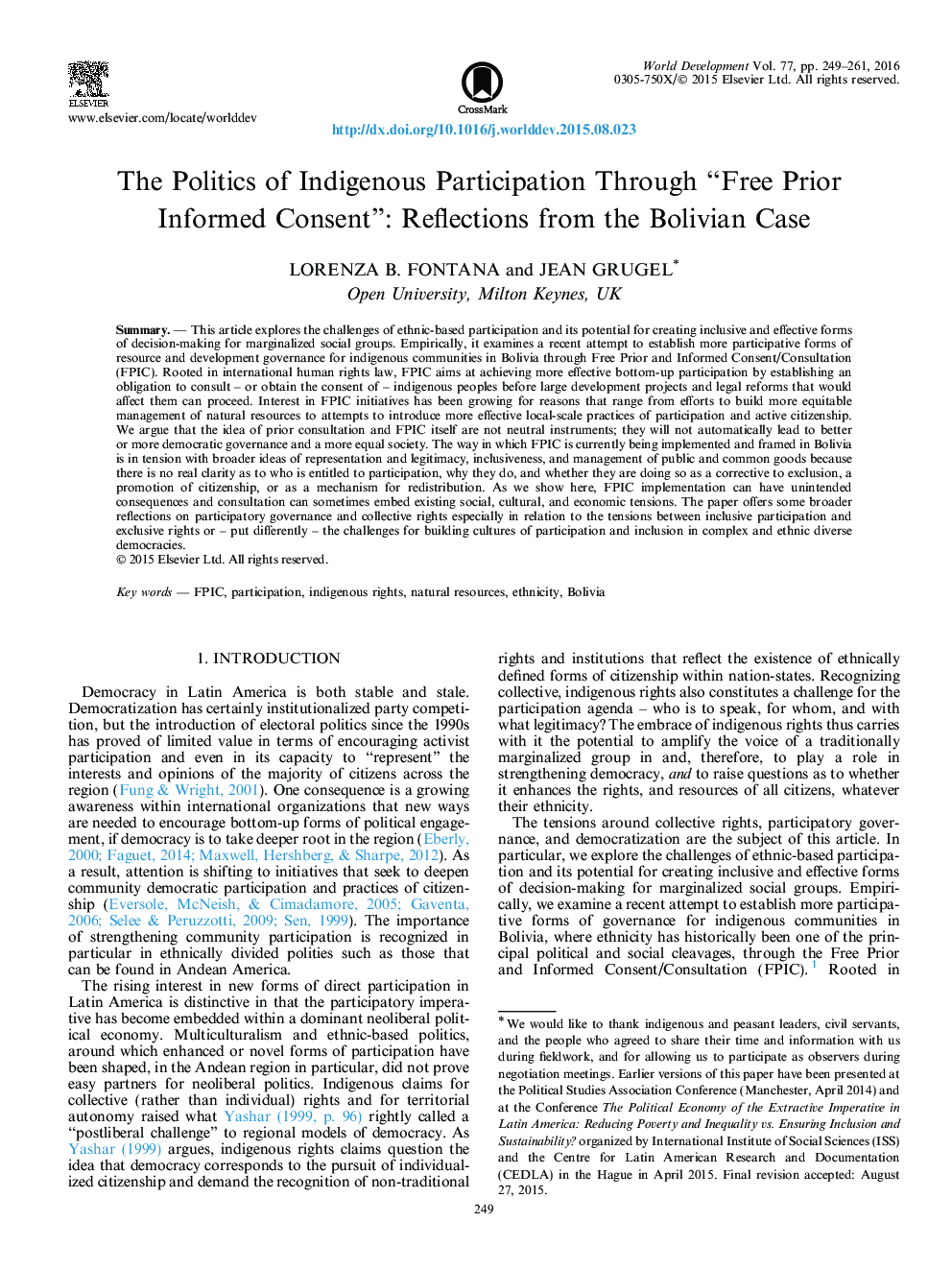| کد مقاله | کد نشریه | سال انتشار | مقاله انگلیسی | نسخه تمام متن |
|---|---|---|---|---|
| 7393194 | 1481141 | 2016 | 13 صفحه PDF | دانلود رایگان |
عنوان انگلیسی مقاله ISI
The Politics of Indigenous Participation Through “Free Prior Informed Consent”: Reflections from the Bolivian Case
ترجمه فارسی عنوان
سیاست مشارکت بومیان از طریق کنفرانس آگاهانه قبل از آن: بازتاب از مورد بولیوی
دانلود مقاله + سفارش ترجمه
دانلود مقاله ISI انگلیسی
رایگان برای ایرانیان
کلمات کلیدی
موضوعات مرتبط
علوم انسانی و اجتماعی
اقتصاد، اقتصادسنجی و امور مالی
اقتصاد و اقتصادسنجی
چکیده انگلیسی
This article explores the challenges of ethnic-based participation and its potential for creating inclusive and effective forms of decision-making for marginalized social groups. Empirically, it examines a recent attempt to establish more participative forms of resource and development governance for indigenous communities in Bolivia through Free Prior and Informed Consent/Consultation (FPIC). Rooted in international human rights law, FPIC aims at achieving more effective bottom-up participation by establishing an obligation to consult - or obtain the consent of - indigenous peoples before large development projects and legal reforms that would affect them can proceed. Interest in FPIC initiatives has been growing for reasons that range from efforts to build more equitable management of natural resources to attempts to introduce more effective local-scale practices of participation and active citizenship. We argue that the idea of prior consultation and FPIC itself are not neutral instruments; they will not automatically lead to better or more democratic governance and a more equal society. The way in which FPIC is currently being implemented and framed in Bolivia is in tension with broader ideas of representation and legitimacy, inclusiveness, and management of public and common goods because there is no real clarity as to who is entitled to participation, why they do, and whether they are doing so as a corrective to exclusion, a promotion of citizenship, or as a mechanism for redistribution. As we show here, FPIC implementation can have unintended consequences and consultation can sometimes embed existing social, cultural, and economic tensions. The paper offers some broader reflections on participatory governance and collective rights especially in relation to the tensions between inclusive participation and exclusive rights or - put differently - the challenges for building cultures of participation and inclusion in complex and ethnic diverse democracies.
ناشر
Database: Elsevier - ScienceDirect (ساینس دایرکت)
Journal: World Development - Volume 77, January 2016, Pages 249-261
Journal: World Development - Volume 77, January 2016, Pages 249-261
نویسندگان
Lorenza B. Fontana, Jean Grugel,
